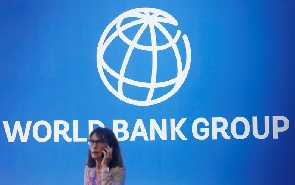 The World Bank report called for more investments in career guidance
The World Bank report called for more investments in career guidance
A new report by the World Bank has revealed that the country is faced with 12% youth unemployment and more than 50% underemployment.
These rates, the Bretton Woods institutions say, are higher than overall unemployment rates in Sub-Saharan African countries.
The report titled “Youth Employment Programs in Ghana: Options for Effective Policy Making and Implementation” identifies agribusiness, entrepreneurship, apprenticeship, construction, tourism and sports as key sectors that can offer increased employment opportunities for Ghanaian youth.
Despite major investments by both government and private sector, this challenge will intensify if job opportunities remain limited.
The World Bank report called for more investments in career guidance and counselling, work-based learning, coaching, and mentoring to equip young people with the skills needed for work.
Reacting to the report, Ghana’s Minister of Employment and Labour Relations said “this report is another milestone towards addressing the unemployment challenge.
It presents specific options to guide the government in the short to medium-term to enhance effective coordination of youth employment programs.”
Meanwhile, the World Bank Country Director for Ghana, Liberia and Sierra Leone Pierre Frank Laporte said “Ghana's youth employment challenge is vast and requires an all-round, deliberate, and consistent response.”
“Considering the options outlined in this report, future youth employment policy planning should not only address youth unemployment but should also build the human capital needed to sustain Ghana’s economy,” he added.
The authors lay out key priorities to promote youth employment in Ghana:
Importance to align formal education programs and skills development initiatives in the context of a fast-changing labour market that requires new and different skill sets, and to adapt to new technology.
Partner with the private sector—such as involving employers in the design of training curricula and introducing certifications for occupational standards to adapt to the future of work.
Integrate pre-employment support activities as part of the country’s current education system to better prepare young people for the transition to work.
Promote social inclusion initiatives to improve access to credit and management training for women entrepreneurs, as well as improve both infrastructure and equipment available for persons living with disabilities and ensure that no one is left behind.
Also, the report emphasizes the need for greater collaboration among different stakeholders to reduce duplication and fragmentation of youth employment programming.
This report is accompanied by an inventory of public job programs in Ghana to inform policymakers and stakeholders on the existing landscape of youth employment programming.